A year into the Israel-Gaza war, the Middle East is on the verge of chaos. How does it end?
analysis
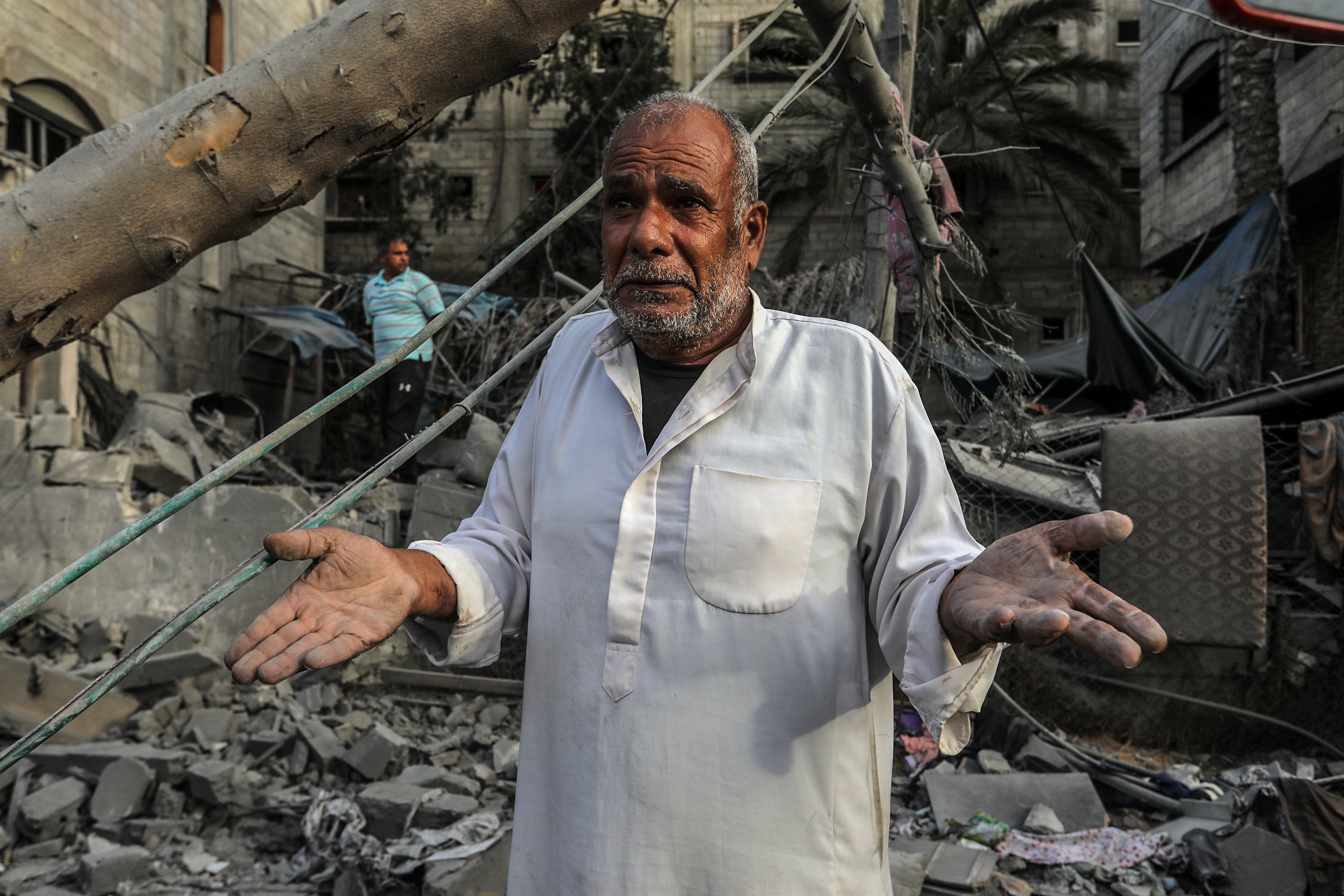
Almost a year since Israel declared war on Hamas in response to the October 7 attacks, more than 40,000 Palestinians are estimated to have been killed.
As the war in Gaza enters its second year and a wider Middle East conflict is on the verge of breaking out, one question remains: How, if it at all, does this end?
On October 7, 2023, Hamas-led militants streamed across the border from Gaza into southern Israel, killing about 1,200 people and kidnapping some 250 others, according to Israeli tallies.
The next day, Israel formally declared war on Hamas, and in the past year, more than 41,800 people in Gaza have been killed, according to the strip's health ministry, from relentless bombing by the Israel Defense Forces (IDF).
Since then, the region has been riven by compounded conflict.
Israel has taken a stronger stance on Hezbollah after months of trading fire across the border, and launched massive air strikes inside, killing its leader Hassan Nasrallah, following it by a ground invasion from the south.
Iran then launched its second retaliatory air strikes in five months directly at Israel in response to the killing of Nasrallah, as well as Hamas political leader Ismail Haniyeh in Tehran.
"I'm not sure that it does end," Mairav Zonszein, senior Israel-Palestine analyst for International Crisis Group, told the ABC.
"At this point, we can't talk just about the war in Gaza, but we have to talk about the war with Hezbollah, and the war in the West Bank … and of course Iran and its proxies."
All of this makes the prospect of a ceasefire in Gaza even less likely, according to Ms Zonszein.
"There's a spectrum," she said.
"It could get much, much worse on several fronts. They're all connected and the connecting theme … is Gaza."
A slow, grinding stalemate?
In Gaza, the fighting has already changed since the IDF opened a new front against Hezbollah.
Israeli infantry operations have largely stopped, and the presence of Israeli troops is now more similar to that in the West Bank, where they maintain strategic positions and conduct raids and intermittent air strikes.
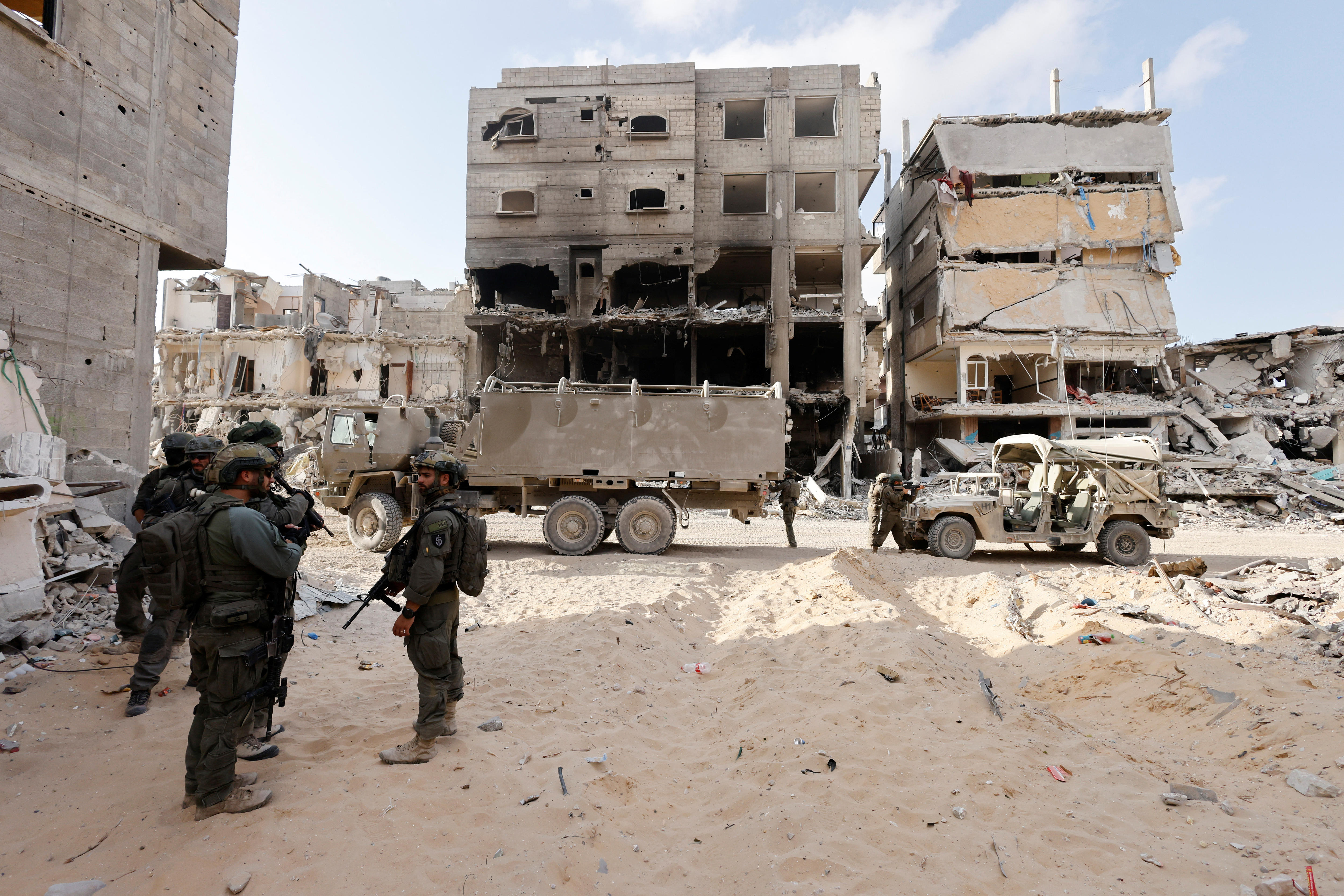
Most experts the ABC spoke to agree the war probably won't end with a formal agreement between Israel and Hamas.
"What we're likely to see is a situation in which Israel will not necessarily resume a full-scale occupation of the Gaza Strip, but rather that it will, for example, call a halt to major military operations," Mouin Rabbani, a Middle East analyst and specialist on Palestinian affairs said.
"It will retain what it calls 'security control'."
Former Mossad [Israeli intelligence] officer turned security commentator, Yossi Alpher, believes the conflict is unlikely to end with a formal agreement between Israel and Hamas.
"One possibility is that it's just going to go on and on — on some sort of very low level — and perhaps, in some ways, be duplicated in the West Bank," he said.
"We're already seeing signs of that happening, so that's one possibility, and that disregards the question of the hostages."
It's estimated about 100 or so hostages remain in Gaza, but Mr Alpher said he no longer believes their fate will decide what happens next in the war.
"I think we've reached a point where the question of the hostages is not going to decide the war. That's my impression," he said.
Mr Alpher said a hostage exchange for Palestinians in Israeli prisons remains a possibility.
"Another possibility is some sort of truce, a ceasefire that involves prisoner exchange, that doesn't end or resolve the war that leaves the Gaza Strip partially occupied, whether it's the northern part or the peripheral parts," he said.
"A kind of stalemate that continues for an indefinite period of time, while Israel turns to the north and turns perhaps to the West Bank as well, and that's where the focus of fighting is."
Eradication of Hamas?
Israeli Prime Minister Benjamin Netanyahu insists Israel will continue its campaign in Gaza until "total victory", the complete surrender or elimination of Hamas, and return of all Israeli hostages.
Netanyahu has suggested that a civilian government "committed to peaceful coexistence" should run the territory after the war, but did not make clear who he would want that to be or how it would be formed.
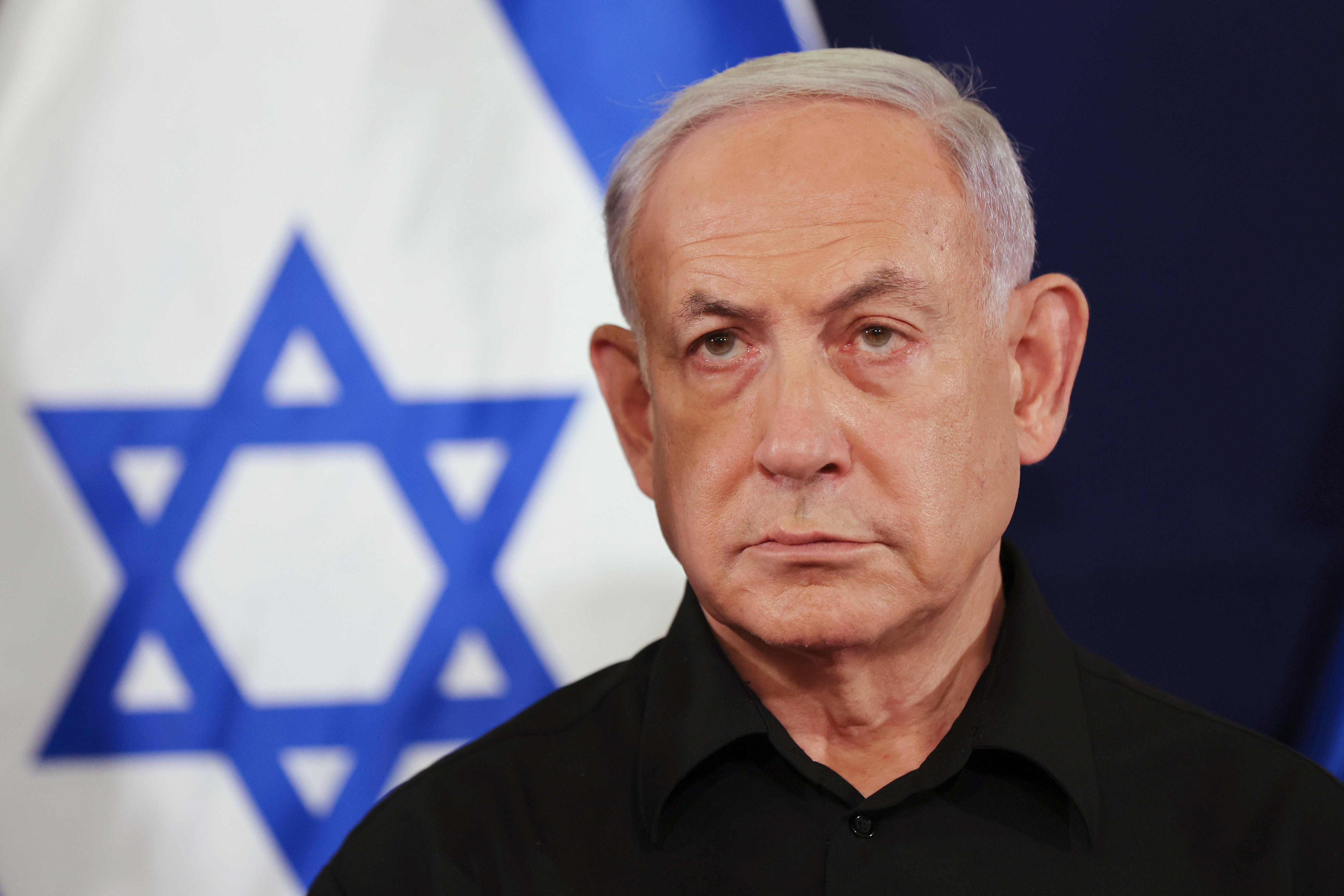
Israeli Prime Minister Benjamin Netanyahu pledged to achieve "total victory" against Hamas.
Failing to resolve the political questions in Gaza — who will govern the territory, who will provide security, who will rebuild and provide services — leaves Palestinians there in dire circumstances.
Israel's invasion and bombing have destroyed much of the territory's critical infrastructure and housing.
Benjamin Netanyahu told the UN last month the Israeli military has destroyed all but one of Hamas' organised battalions.
The group is badly weakened, but still active, and continues to conduct a guerilla warfare campaign.
While not exactly in power, Hamas is still a powerful group capable of both attacking the Israelis and exercising some authority over Gazans.
Supported by an ideology, their complete eradication could prove impossible.
Will Gaza be uninhabitable?
The two million people still living in Gaza need urgent rebuilding of homes, hospitals, water treatment and sewage plants, electricity infrastructure and schools.
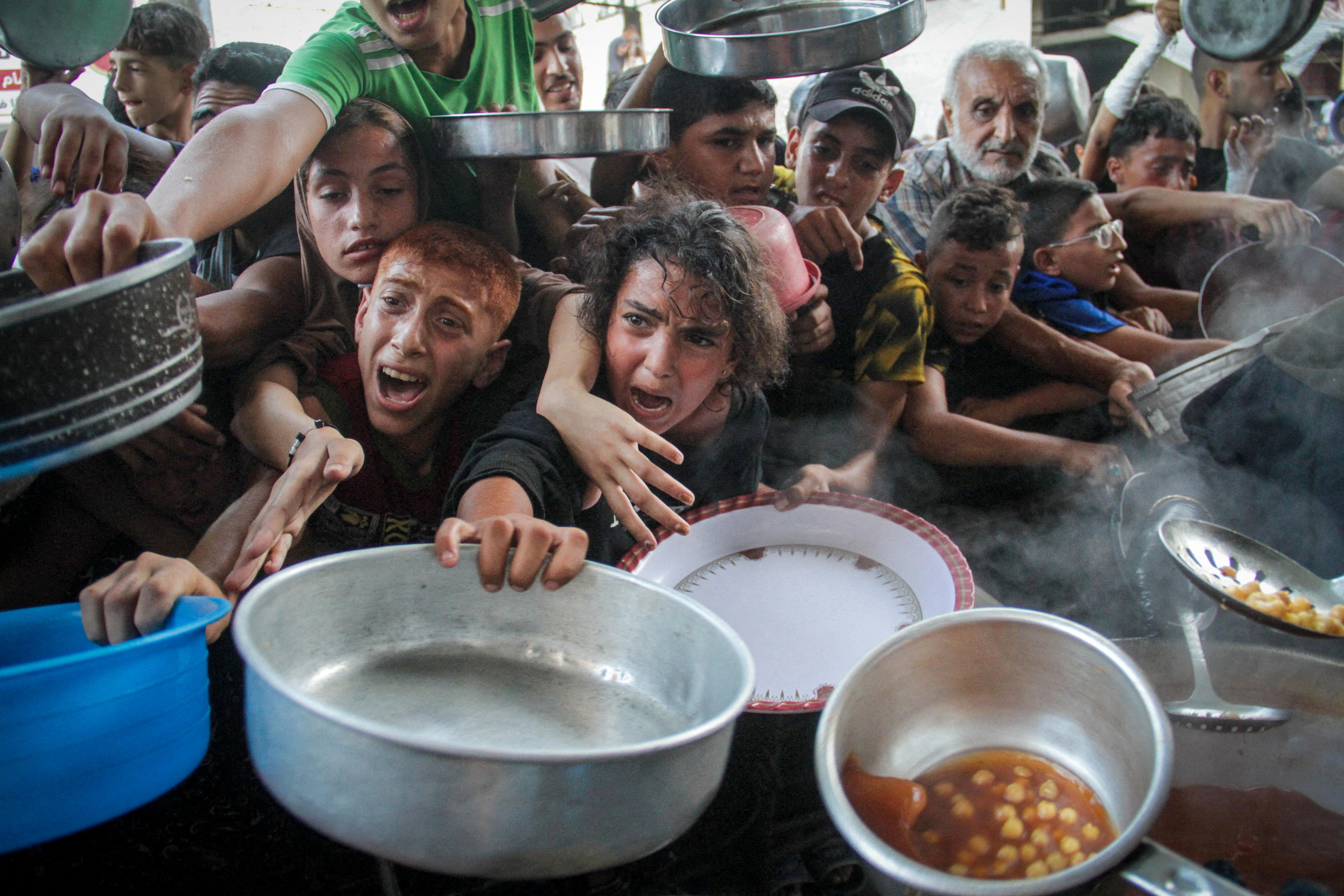
The United Nations says war in Gaza has left children extremely vulnerable to hunger and malnutrition.
But that isn't happening on the necessary scale while the conflict remains unresolved.
"I think what we're seeing now also is a campaign by Israel, I would argue, a systematic campaign to make the Gaza Strip unfit for civilised human life, to make the Gaza Strip unfit for human habitation," Mouin Rabbani said.
"In that context, we will see either large numbers of Palestinians trying to force themselves across into Egypt, for example, so they can get the essentials of life, food, water, medical care and so on.
"Or we will see them gradually, arguably, in growing numbers, seeking to escape the Gaza Strip the same way the Syrian refugees have during the past decade, or Afghans or African refugees."
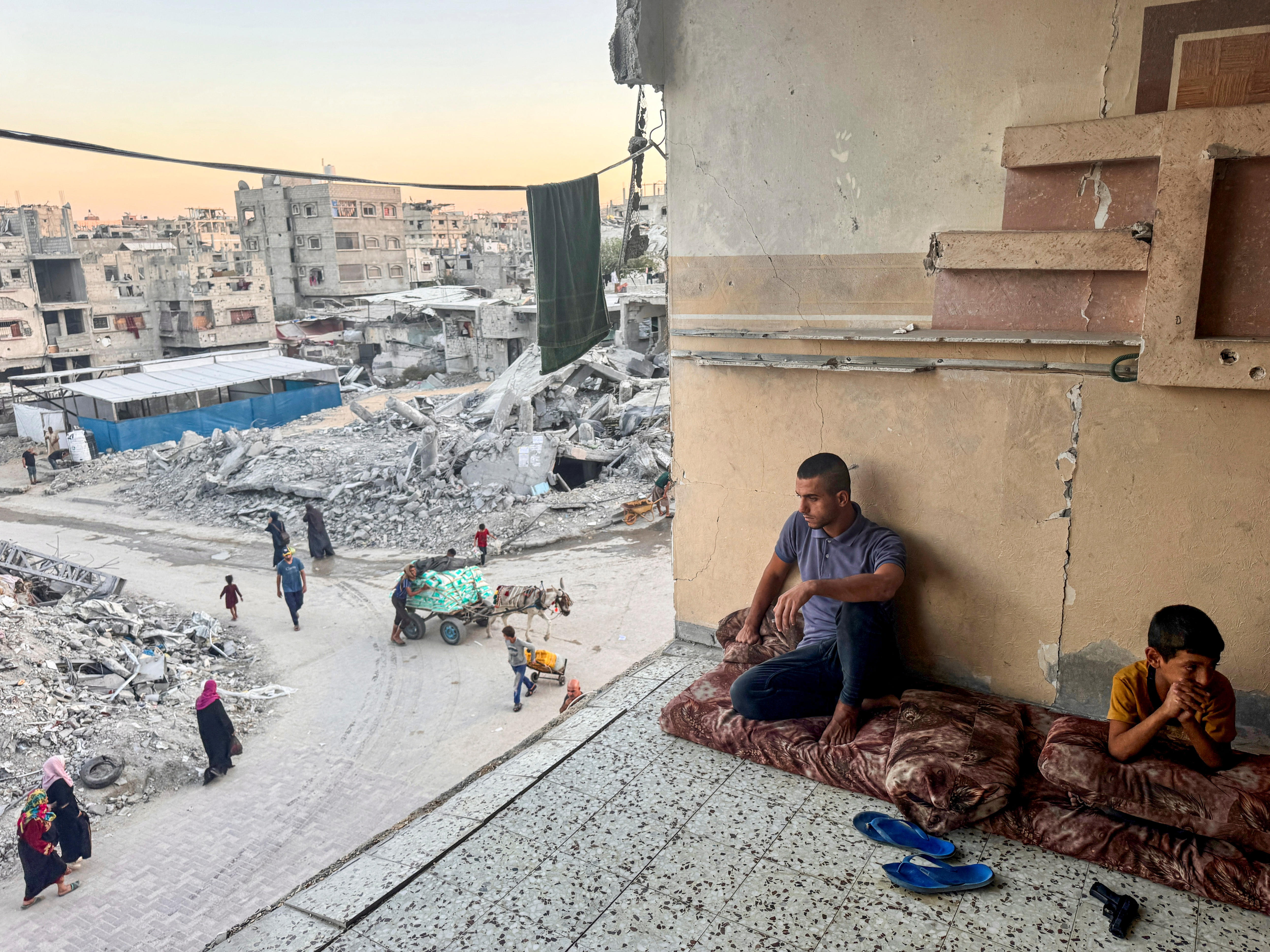
Local health authorities say more than 40,000 Palestinians have been killed since the war began a year ago.
Israel's military denies systematically destroying infrastructure, saying it is only targeting Hamas and other militant groups which have placed themselves in civilian environments.
And in December, an Israeli government spokesman denied claims that Israel intended to empty Gaza of Palestinians as "outrageous and false accusations".
'This war as currently constituted, serve Netanyahu's political purposes'
One reason these analysts said the war may not end is because an ongoing conflict serves the political purposes of some Israeli and Hamas leaders.
"Because this current government, not just Netanyahu, but his far-right [coalition] together have made it quite clear that their priorities are to stay in power, to stay at war, to keep control of Gaza, arguably reoccupy Gaza," Mairav Zonszein said.
"There's an open platform by the ministers on which Netanyahu relies to stay in power that they want to control the entire territory between the river and the sea."
She describes this as a "huge opportunity" for some politicians.
"While they're in power, they're creating dramatic changes in the way that Israel operates in the West Bank, the way that the police operate throughout Israel," she said.
"I don't know if there's anything short of a major US intervention that includes some kind of major conditioning of arms supplies that would change Netanyahu's behaviour."
Israel denies it wants to incorporate all of the West Bank, but the UN's international court of justice (ICJ) found that the restrictions placed on Palestinians in the West Bank and East Jerusalem amounted to apartheid and are in breach of human rights law.
"I think this coalition and this war as currently constituted, serve Netanyahu's political purposes, and at the same time, this war, as currently constituted, serves [late Hamas leader Yahya] Sinwar's ideological purposes," Yossi Alpher said.
"After all, when he attacked on October 7, one of his goals was clearly to see the war expand to include the entire Iran-led Axis of Resistance. That didn't happen right away, but it's still happening. You still have Hezbollah, you have the Houthis. You have more unrest in the West Bank.
"I don't see either one inclined to compromise, because it's too dangerous for Netanyahu's political wellbeing, and it's too dangerous for Sinwar."
'We're at a genuine turning point'
The effects of the war have already started to ripple outwards, affecting the wider region.
"We're at a genuine turning point in the Middle East," Mouin Rabbani said.
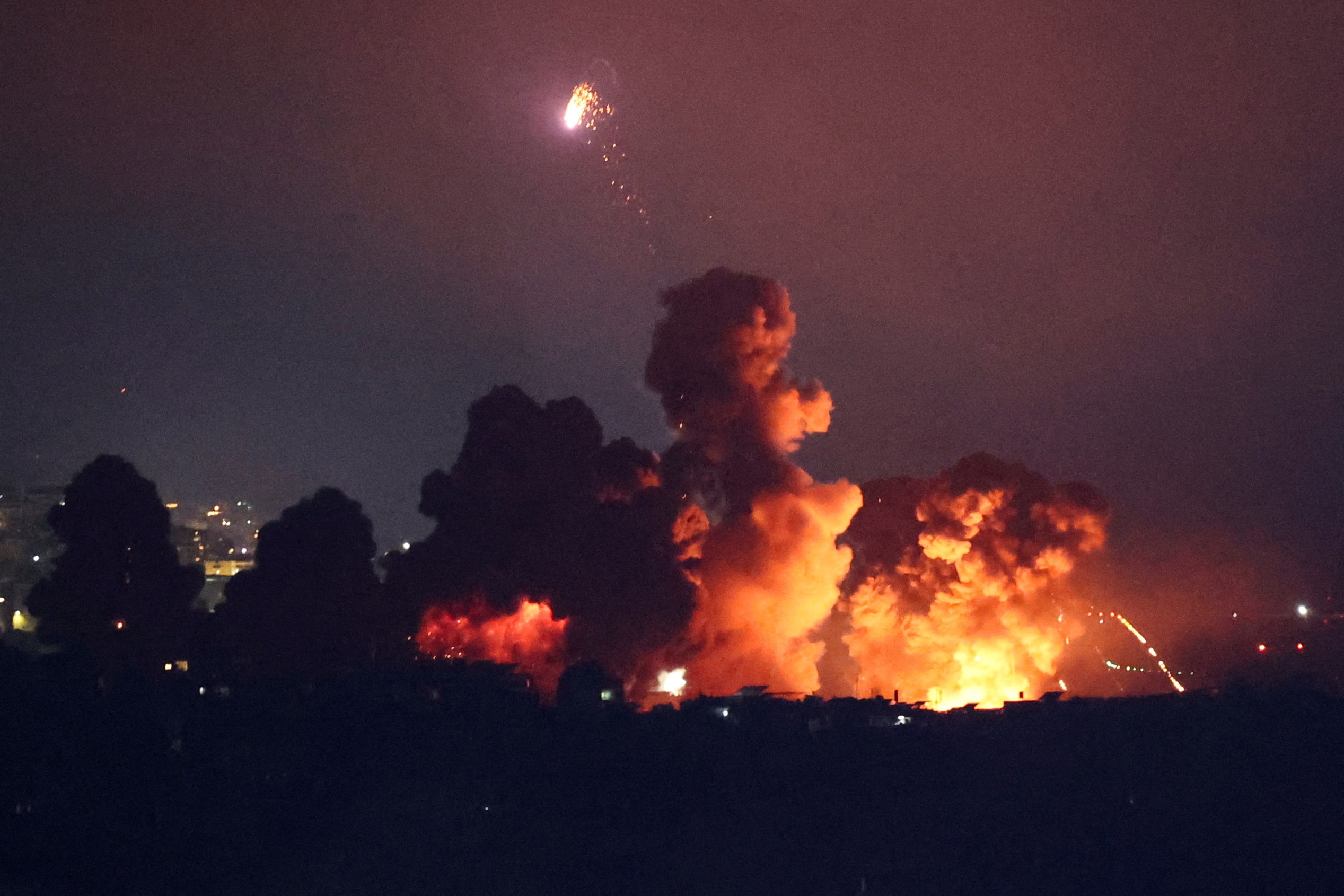
Smoke rises following an explosion over Beirut's southern suburbs, amid the ongoing hostilities between Hezbollah and Israeli forces.
"I think what has happened during the past year is going to affect the region for decades to come. It is going to cause significant political transformations in the region and have significant repercussions, not only within the region, but also for relations between the region and the rest of the world. This can cause growing levels of instability and insecurity within the region."
Things have unquestionably gotten worse for Palestinians in both Gaza and the West Bank, but reverting to the situation before October 7 is unacceptable as well, said Amjad Iraqi, a senior editor at +972 Magazine and member of al-Shabaka, a Palestinian policy centre.
"[Palestinians] are not interested in just going back to the way things were, because the way things were may have been convenient for Israelis, but for Palestinians, it was a very brutal military occupation," he said.
"All these unanswered questions about Israel's place in the geopolitical equation from Lebanon, to even the question of Arab normalisation, is still up in the air, precisely because they all try to avoid the central question, which is 'will Palestinians be allowed to achieve self-determination and liberation, or will the world basically allow for the occupation to continue?'"
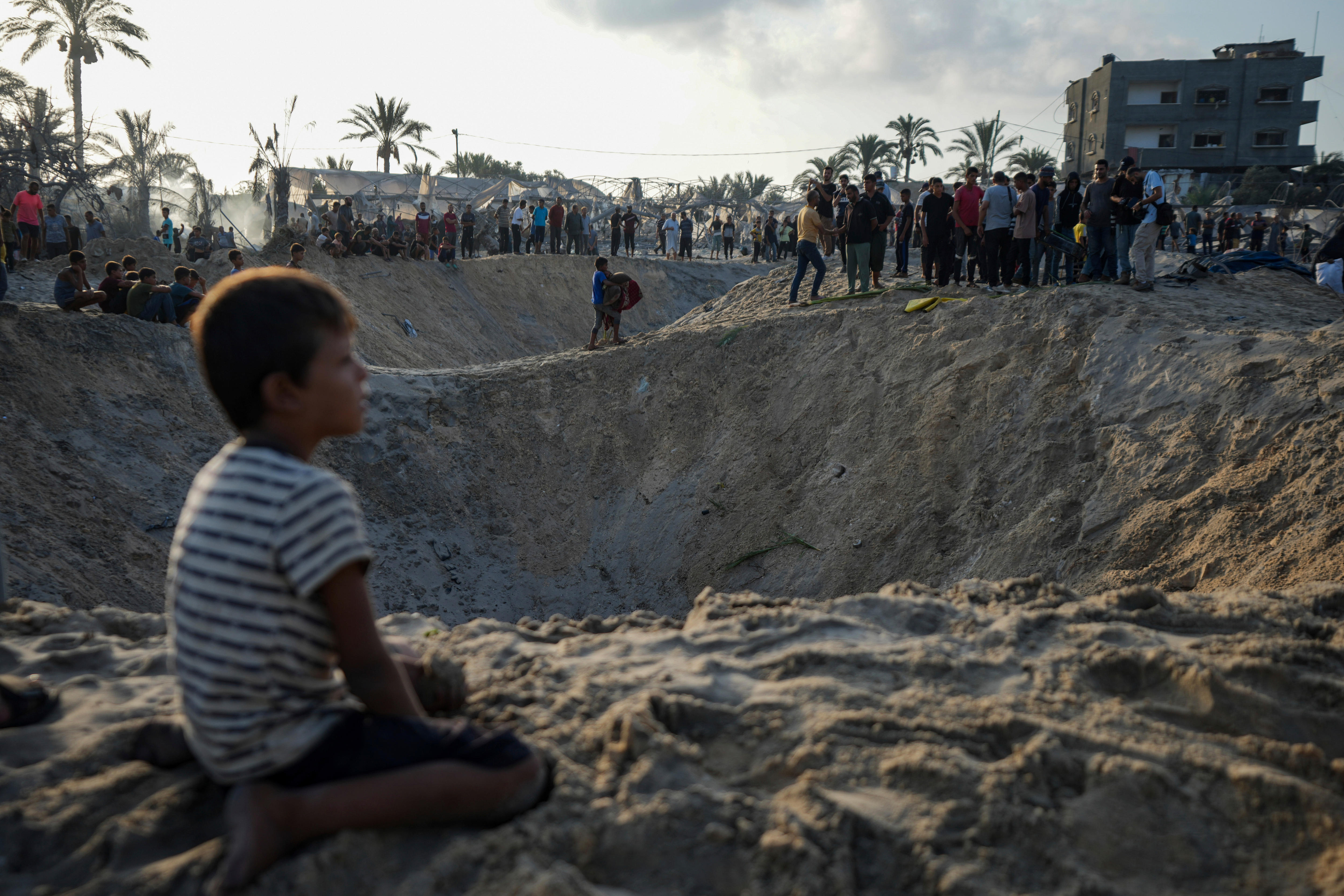
A child sits at the edge of a crater after an air strike near a crowded tent camp in Gaza.
By:https://www.abc.net.au/news/2024-10-06/israel-gaza-war-one-year-anniversary/104413078(责任编辑:admin)
下一篇:Volunteers overwhelmed caring for millions of stray cats in China
 Socceroos rescue a point
Socceroos rescue a point  Wallabies thrash Wales 52
Wallabies thrash Wales 52 Jake Paul beats Mike Tyso
Jake Paul beats Mike Tyso Live updates: England vs
Live updates: England vs  US election 2024: Donald
US election 2024: Donald  US election live: Kamala
US election live: Kamala
- ·North Korea's latest weapon agains
- ·Hezbollah says Israel 'cannot impo
- ·Inside the rise of US oligarchs and how
- ·Thailand's worst suspected serial
- ·Tabi shoes are turning heads from Holly
- ·FBI arrests Florida man planning attack
- ·Illegal immigrant gets life sentence fo
- ·Bibles, water, watches and sneakers: Do
- ·North Korea's latest weapon against
- ·Hezbollah says Israel 'cannot impose
- ·Inside the rise of US oligarchs and how i
- ·Thailand's worst suspected serial ki
- ·Tabi shoes are turning heads from Hollywo
- ·FBI arrests Florida man planning attack o
- ·Illegal immigrant gets life sentence for
- ·Bibles, water, watches and sneakers: Dona
- ·US to give Kyiv anti-personnel landmines
- ·An arrest warrant for Benjamin Netanyahu
- ·One of Vietnam's high-profile politi
- ·Shanghai Walmart Attack: A Man Randomly S
- ·South Korean police officers jailed over
- ·Cambodia publicly shames maid deported af
- ·North Korea to use all forces including n
- ·Philippines condemns China attack of Viet
- ·US adds 2 more Chinese companies to Uyghu
- ·North Korean defector steals South Korean
- ·Malaysia deports Cambodian worker for cal
- ·Rebels battle for Myanmar junta’s weste

